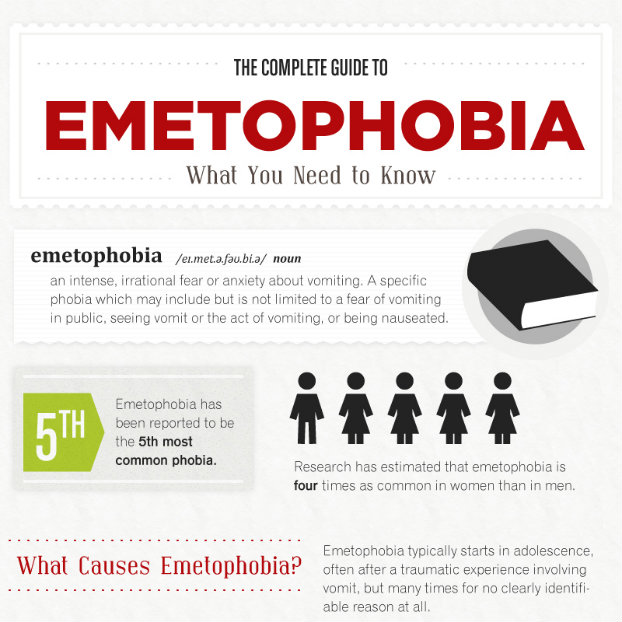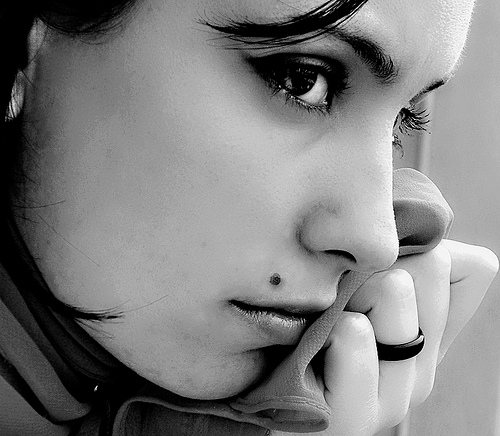 Emetophobia, also known as a specific phobia of vomiting, is a lesser known anxiety disorder that can affect both children and adults. Because it is so little studied, the prevalence of emetophobia is not well-established. However, a recent study estimated that over eight percent of people suffer from emeotphobia.
Emetophobia, also known as a specific phobia of vomiting, is a lesser known anxiety disorder that can affect both children and adults. Because it is so little studied, the prevalence of emetophobia is not well-established. However, a recent study estimated that over eight percent of people suffer from emeotphobia.
The reasons that people have reported for developing emetophobia are not always the same. Many people with emetophobia say that their fear of vomiting began with a negative event related to being sick. This can be battling an illness that causes vomiting or witnessing another person being physically ill. The defining event usually occurs in childhood when the person is more vulnerable to emotional disturbance or trauma.
Unfortunately, many people who develop emetophobia in childhood do not receive treatment until adulthood, if at all. Like most disorders, emetophobia is easier to treat successfully in childhood. Treatment for childhood emetophobia is also beneficial because it help the child to overcome some of the eccentric and unhealthy eating habits emetophobics can develop in a misguided attempt to avoid illness. For example, some children will restrict their diet or refuse to eat certain foods or food groups to the detriment of their health and development.
One thing that researchers are hoping to find is what truly drives an emetophobic person to feel such intense fear of vomiting. Some emetophobic people fear the loss of control caused by nausea and vomiting. Others fear deadly illness or contamination, similarly to some people who have Obsessive-Compulsive Disorder (OCD).
But for some, it seems that the fear may actually be related to others’ perception of them. They fear that someone will see them being ill and think negatively of them (e.g., judge them or find them repellant). This can hinder them from seeking treatment or talking to others about their anxiety.
An overwhelming fear of negative judgment or rejection can be social phobia. Social phobia (or “social anxiety disorder”) can cause people to feel extremely uncomfortable around others. Social phobics worry excessively about their social interactions, constantly imagining scenarios of rejection or failure and obsessing over past social situations in which they felt they did not perform well.
An emetophobic person who has anxiety related to social situations is likely to feel uncomfortable around others. This can lead him or her to avoid social interactions, sometimes to an extreme measure (agoraphobia).
Mental health workers who are treating a person with emetophobia may try to determine whether he or she has underlying social anxiety issues, as they can affect the efficacy of the treatment. By focusing on one disorder at a time, the psychiatrist or psychologist may be better able to teach the emetophobic person how to overcome his or her fear.
Photo Credit: Chantelle Kemkemian via Compfight cc





